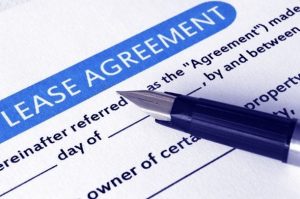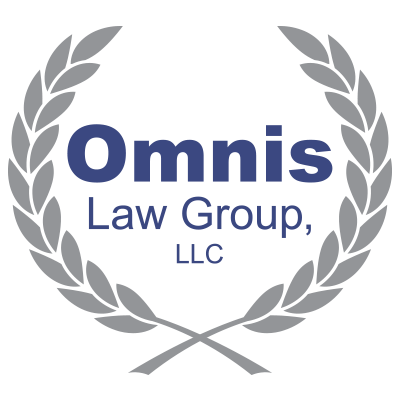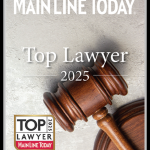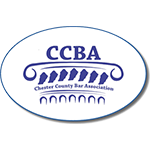 For many business owners, monthly rent is one of the largest expenses. A lease will cover many important rights such as the rights a tenant has in the event of damage to the premises, the right of the landlord to terminate, limitations on tenant’s use of the property and many other issues that will add or mitigate substantial risk to you and your business.
For many business owners, monthly rent is one of the largest expenses. A lease will cover many important rights such as the rights a tenant has in the event of damage to the premises, the right of the landlord to terminate, limitations on tenant’s use of the property and many other issues that will add or mitigate substantial risk to you and your business.
Therefore, it is important for a small business owner to know what to look out for and how to minimize risk and increase options and flexibility. The purpose of this article is to educate tenants about some of those issues.
- Type of Lease
To get a handle on what your rent will be each month, it is important to know what type of lease you are signing.
- Gross lease: In a gross lease, tenant pays a set amount that includes base rent (the monthly rent for the use of the property) plus all operating expenses such as utilities, insurance, maintenance, taxes, and property management. Tenants often prefer this structure since costs are the same each month.Net lease: Under a net lease, the tenant pays some operating costs directly. The types of net leases are:
- In a net lease, tenant typically pays the base rent plus one of the following: property taxes (most common), insurance or utilities. Landlord pays for all other expenses.
- In a double net lease, the tenant pays base rent plus property taxes and insurance.
- In a triple net lease, the tenant usually pays base rent, plus property taxes, building insurance and utilities, as well as other operating and maintenance costs.
- Note: Often, a landlord will add a common area maintenance (CAM) charge for buildings and shopping centers where tenant will play its pro rata cost of expenses such as management fees, parking lot and common area maintenance and other costs. It is important to have qualified counsel review the list of CAM charges in a lease and the rights of Tenant to audit landlord’s charges.
- Percentage lease: Tenant pays base rent plus a percentage of its gross sales, usually over a threshold amount.
- Modified gross/modified net lease: The parties can also negotiate either a modified gross or a modified net lease. This type of lease provides more of a compromise for both the landlord and the tenant.
If you are expected to pay for operating expenses, you will need to understand all the costs involved and make sure they fit within your budget. If you have a net lease, what specific maintenance costs are you responsible for? You will also want any future rent increases clearly outlined in the lease agreement.
- Research and define the property you are considering renting
Prior to signing the lease, perform a title search to make sure that landlord has the rights to the lease premises and that there are no restrictions or liens on title that could adversely affect tenant’s use and enjoyment of or access to the property. If there is a mortgage on the property, the tenant will often be asked to sign a subordination agreement recognizing the mortgagee’s rights and confirming the subordinate position of the lease. Tenant should be careful to make sure that the landlord’s mortgagee/lender is obligated to recognize tenant’s rights under the lease.
Also, consider whether there are other tenants in the building/property that have access to common areas? Will the tenant and its customers have adequate access to parking?
- Length of the lease/renewal options
The term of the lease and under what circumstances a tenant can renew is very important and should be well documented in the lease. A shorter term will provide a tenant with more flexibility but may result in a situation where landlord decides not to renew the lease at the end of the term, causing tenant to suffer substantial relocations costs. A longer-term lease will often be less expensive as landlords are more likely to make rent concessions in return for the longer term.
Depending on the needs of your business, consider negotiating an initial five or ten-year term with options to renew every five years. The lease should provide that options to renew can be exercised if the tenant is not in default.
The route a tenant chooses depends on the needs of its business. For a business that is site specific such as a restaurant or other retail location a shorter term with definitive options to renew may be the way to go. For locations such as office space or warehousing, it might make sense to have a longer-term lease if tenant can get a lower payment.
- Defaults/termination rights
A lease will define the circumstances under which a tenant will be in default and define what rights the landlord has in such a situation. Be sure to negotiate notice and cure periods for a tenant default so that the tenant is first informed by landlord of a default and has the right to cure that default before landlord can exercise its options, such as termination of the lease.
A landlord will often insist on the right to accelerate lease payments after the lease has been terminated. This will allow a landlord to collect not only rent due and owing as of the date of lease termination but future rent as well. Consider negotiating a limitation on the amount that can be accelerated and adding a clause requiring the landlord to use reasonable efforts mitigate its damages by marketing the property to a new tenant and subtracting the rent recovered from the accelerated rent. This is especially important to the extent that the tenant’s principals have signed personal guarantees.
- Casualty
Pay particular attention to the rights of the parties in the event of damage to or destruction of the property. Under what circumstances can the tenant terminate the lease if there is a fire or other damage to the property? How much of the property needs to be destroyed for such a termination right to be invoked? How are insurance proceeds handled? Who is required to rebuild?
- Tenant fit-out/ownership of FF&E
Depending on market conditions and the leverage of the respective parties, a tenant can often negotiate that landlord will pay all or a portion of the cost of fitting out the leased premises for tenant’s business. Usually, such an obligation by the landlord comes with a corresponding right of the landlord to recapture the unamortized portion of the fit-out expense in the event of an early termination.
Also, to the extent that tenant has paid for furniture, fixtures and equipment, the lease should make clear that such FF&E are owned by and can be removed by the tenant upon expiration or earlier termination of the lease. State laws vary
on what constitutes a fixture that is not removable by tenant and what may be removed by a tenant. These state laws can be circumvented by careful drafting of the lease to make it clear what rights a tenant has in such fixtures.
- Non-compete/co-tenancy clauses
If your business would be adversely impacted by a competitor moving in the same shopping center or building, consider asking the landlord for a clause that requires the landlord to obtain tenant consent prior to leasing to any competitor. In such a case, what constitutes a competitor must be carefully defined.
If the leased premises is in a strip mall or shopping center, your small business may benefit from an anchor tenant that helps ensure drive-through and walk-in traffic. If so, ask for a co-tenancy clause that will lower your monthly rent or even allow you to terminate if many tenants or an anchor tenant suddenly leaves.
- Sublease/Assignment
Your business may suffer losses, or you may need to downsize or move to a new location; so, your lease should allow for and define the circumstances under which you can assign the lease or sublet it to a new tenant. This is especially important to the extent that the tenant’s principals have signed personal guarantees.
- Other considerations and terms
Think about:
- Break clauses – under what circumstances might you need the right to terminate early: sales consistently fall below a threshold; landlord makes significant changes to the property adversely affecting your visibility to customers or ingress and egress.
- Lease flexibility – under what circumstances might you want the right to increase or reduce space.
- Act of God provision (aka Force Majeure) – Generally, U.S courts did not include the pandemic and related government shut down as being included in “act of god” or force majeure clauses. Consider including “epidemic,” “pandemic” or “government shut down” (which will need to be carefully defined) in your lease’s “force majeure” clause to ensure you are excused from paying rent or can at least get a rent deferral, during the period of such occurrences.
The above is hardly an exhaustive list of the issues that a tenant should consider when entering a new lease. Qualified counsel, like Val DiGiorgio of Omnis Law Group, can help you navigate these issues and draft a lease that is right for you and your small business. Val can be reached at VFD@Omnislawgroup.com, you can contact the firm online, or call 484-81-OMNIS to set up an initial consultation.









